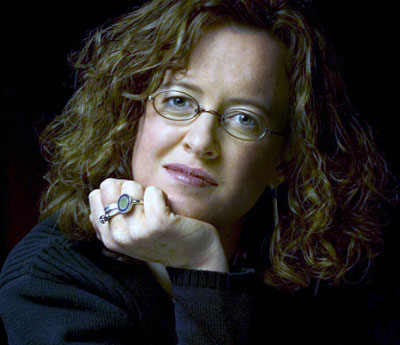Dr. Genevieve Bell to Speak at Purdue
03-05-2007

Mark your calendars for Thursday, April 5, 2007 at 3:30 p.m. Dr. Genevieve Bell from Intel Corporation will be giving a talk at Purdue on April 5th entitled, "Just like Magic: anthropological accounts of wireless technology ." The talk will be held at Fowler Hall in Stewart Center and a reception will be held after the talk at the Anniversary Drawing Room in the Purdue Memorial Union.
ABSTRACT:
In 1840, Maori elders from New Zealand's north island agreed to the terms and conditions of a British treaty. Amongst its many provisions, the Treaty of Waitangi as it is commonly known, retained Maoris rights in land and taonga (treasures). In 2005, Nextscribe.org, a Catholic think-tank in New Mexico declared that the 'network is the church" and set out an ambitious agenda for research into the role that technology might play in the spiritual lives of America's (and the world's) Catholics. What do these events have in common, and why might they be relevant to our contemporary discussions about wireless technologies?
In this talk, I propose to re-examine the notion of 'wirelessness' from an anthropological perspective. This talk is informed by nearly a decade of ethnographic research in and around domestic environments, and by ethnographic and feminist theory. I also draw on historical and contemporary cultural practices, events and accounts - emergent technologies often lack a genealogy and here I attempt to locate this conversation in a broader historical and cultural context with particular reference to Australia, and the United States. This paper is divided into several sections: a discussion of notions of magic and technology, an attempt to define wirelessness from a socio-technical point of view, and the presentation of three different interpretative frames for wirelessness: one grounded in history and political economy, one grounded in cultural practice; and one grounded in notions of citizenship and nation-states, all of which are underwritten, in some part, by magic thinking or ideas of magic. Ultimately, I want to suggest a different way of thinking and talking about one of the dominant technology infrastructures of this decade.
BIO:
An internationally recognized ethnographer, Genevieve Bell has developed product shaping insights into consumers world-wide and is bringing a research driven, end-user focus to Intel. Her influence has been recognized with the award of Intel’s highest honor: an individual Intel Achievement Award. She is a Senior Principal Engineer and the Director of User Experience within Intel’s Digital Home Group and manages an inter-disciplinary team of social scientists, designers and human factors engineers. She and her team strive to stay ahead of Intel’s technology roadmap, using insights gained for in-depth ethnographic and design research to help drive innovations in and around Intel platforms, creating technology that responds to human needs, desires and aspirations.
Bell is particularly interested in issues of cultural difference as they are expressed around technology adoption and use; she has conducted fieldwork around the world and is currently working on a book based on her recent ethnographic research in Asia. Her work has been widely published and cited and she is active in the fields of anthropology, computer-human interaction and ubiquitous computing.
Raised in Australia, Bell received the bulk of her education in the United States. Prior to joining Intel in 1998, Bell taught anthropology and Native American Studies at Stanford University in California. Bell received her BA/MA in anthropology from Bryn Mawr College in Pennsylvania in 1991. She earned a PhD in cultural anthropology from Stanford University in 1998.